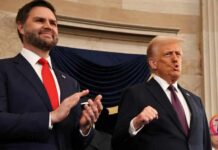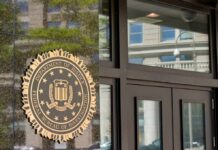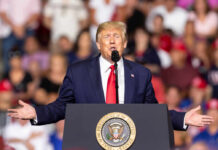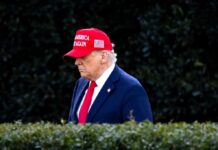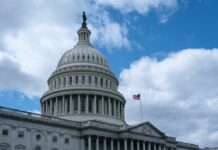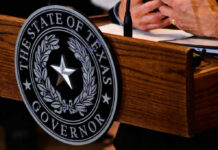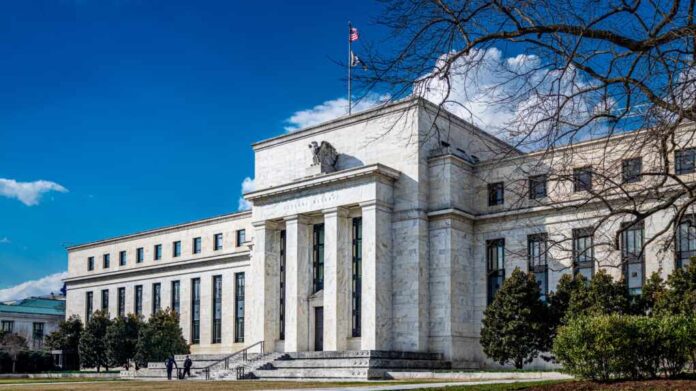
Trump’s unprecedented legal move to remove Federal Reserve Governor Lisa Cook has ignited a fierce debate over the Fed’s independence.
Story Snapshot
- Trump seeks Supreme Court intervention to remove Fed Governor Lisa Cook.
- This is a historic first in challenging the Fed’s independence via the judiciary.
- Trump’s actions are driven by policy disagreements and alleged misconduct.
- The Supreme Court’s response could set a critical precedent for central bank governance.
Trump’s Legal Challenge to the Federal Reserve
In an unprecedented legal maneuver, former President Donald Trump has filed an emergency request with the U.S. Supreme Court to remove Federal Reserve Governor Lisa Cook. This action is part of Trump’s broader strategy to influence the Federal Reserve’s leadership, citing policy disagreements and alleged misconduct. Trump’s move is a significant departure from traditional challenges to the Fed, which typically involve political or legislative avenues rather than judicial intervention.
Governor Lisa Cook, confirmed to the Federal Reserve Board in May 2022, has been a target of Trump’s criticism due to her policy positions on inflation and monetary policy. These disagreements have heightened tensions, leading Trump to publicly accuse Cook of “politicizing” the Fed. Despite attempts to pressure Congress and the previous administration to remove Cook, this judicial appeal marks a new escalation in Trump’s efforts.
🚨 BREAKING: President Trump has filed an emergency appeal with the SUPREME COURT to uphold his firing of Democrat Fed Governor Lisa Cook, due to her credible mortgage fraud allegations exposed by Bill @Pulte.
This case is ironclad.
It’s time for SCOTUS to uphold Article 2 and… pic.twitter.com/tRV9CfSiC2
— Eric Daugherty (@EricLDaugh) September 18, 2025
Implications for Central Bank Independence
The independence of the Federal Reserve is a cornerstone of economic stability, and Trump’s petition to the Supreme Court puts this independence under scrutiny. Legal experts suggest that the Supreme Court is unlikely to intervene, given the lack of precedent and statutory authority for judicial removal of Fed governors. However, the mere filing of this petition raises concerns about potential political interference in central banking.
Should the Supreme Court choose to entertain Trump’s request, it could set a significant precedent for executive and judicial roles in central bank governance. This has sparked debates among policymakers, economists, and legal scholars, many of whom warn against the dangers of politicizing monetary policy.
Watch: Trump asks Supreme Court for emergency order to remove Fed Gov. Lisa Cook
Reactions and Future Outlook
Reactions to Trump’s petition have been swift and polarized. Trump has defended his actions by arguing that the Federal Reserve must be accountable to the American people and not be driven by political operatives. In contrast, Lisa Cook and the Biden administration have emphasized the importance of maintaining the Fed’s independence to ensure economic stability and uphold the rule of law.
As the Supreme Court reviews the briefs from both sides, the financial markets and political institutions are bracing for potential impacts. The decision, whether to hear the case or not, will be closely watched as it could influence future interactions between political leadership and central bank governance. The outcome of this case may well shape the boundaries of political influence over the Federal Reserve for years to come.
Sources:
Mediaite (original story)
Reuters (Fed governance)
Wall Street Journal (Fed governance)
Brookings Institution (central bank independence)
Harvard Law Review (legal analysis)


